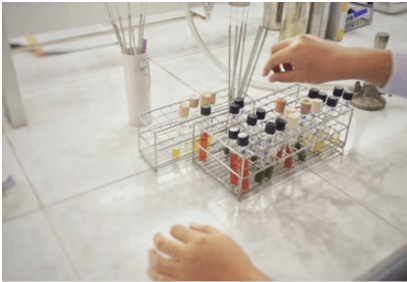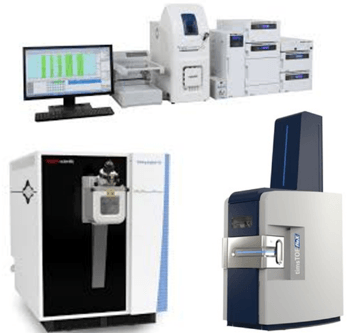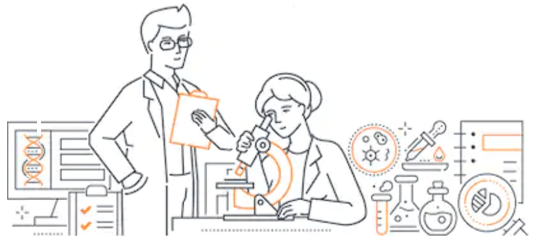Metabolomics has become a widely used biomolecular technique for analyzing specific physiology associated with cancer. Specifically, metabolomics can be used to study metabolic disorders in cancer and discover novel metabolites, investigate regulatory mechanisms (including changes in metabolism and gene expression, protein function and other processes in systems biology), and provide potential sources of therapeutic targets and disease biomarkers. In addition, metabolomics using in vivo isotope tracing and metabolite imaging can improve our understanding of the role of metabolic reprogramming in cancer.
Background of Cancer Metabolomics
 In addition to genomics, transcriptomics, and proteomics, metabolomics methods are often used as the most downstream analysis approach that reflects phenotypic and pathophysiological changes of biological systems. Cancer metabolomics is a rapidly developing field, which focuses on the research on metabolic phenotype and metabolite functional network of human cancers, as well as the discovery of diagnostic cancer biomarkers.
In addition to genomics, transcriptomics, and proteomics, metabolomics methods are often used as the most downstream analysis approach that reflects phenotypic and pathophysiological changes of biological systems. Cancer metabolomics is a rapidly developing field, which focuses on the research on metabolic phenotype and metabolite functional network of human cancers, as well as the discovery of diagnostic cancer biomarkers.
Metabolomics using techniques such as mass spectrometry and magnetic resonance spectroscopy can perform qualitative and quantitative analysis of small molecules present in biological systems to find metabolic differences among different types of cancer and determine the new potential for treatment methods.
Cancer Metabolomics Analysis Provided by Creative Proteomics
With cutting-edge platforms, Creative Proteomics provides comprehensive one-stop metabolome profiling for cancer research. We combine multiple chromatography and spectrometry technologies. The former includes liquid chromatography (LC), capillary ion chromatography, 2-D gas chromatography, and the latter includes mass spectrometry (MS) and nuclear magnetic resonance (NMR) spectroscopy. Our platform supports various occasions from imaging for single cell metabolomics to tissue and functional metabolomics.
Featured with high throughput and super-sensitivity, our protocols cover sample preparation, metabolite separation, characterization, identification, quantification, and data analysis, interpreting both targeted and untargeted metabolic processes. We are committed to promoting the understanding of cancer metabolomics and its role in human cancer.
Key features and advantages
 Multiple platforms for high-throughput assays
Multiple platforms for high-throughput assays
Compatible with a wide range of samples
Accurate analysis of intracellular metabolic networks and interactions between intercellular and extracellular environments
Extensive experience in bioinformatics analysis
Completed numerous cancer research projects
Efficient workflow and reasonable price
Main services
Using the latest chromatography and mass spectrometry technology, Creative Proteomics provides:
- Comprehensive metabolomics analysis of cancer cells, tissues and biofluids
- Non-targeted cancer metabolite profiling
- Cancer lipid metabolism
- Cancer hyaluronic acid profiling
- Non-targeted cancer tracer analysis
- Targeted cancer metabolite profiling
- Cancer anionic metabolite profiling
- Cancer amino acid profiling
- Cancer organic acid profiling
- Cancer glutathione analysis
- Cancer polyamine analysis
- DNA damage metabolite analysis
- Targeted cancer tracer analysis
- Cancer fatty acids analysis
- Custom targeted cancer metabolomics
- Energy metabolism for cancer
- Cancer biomarker discovery
Workflow

Bioinformatics Analysis
| Analysis Contents | Details |
|---|
| Quantification | Determination of the amount of metabolite in specific samples, yielding information about the differences among the samples. |
| Targeted analysis | Measurement of the concentration of limited numbers of known metabolites precisely, it is a quantitative approach and provides low limits of detection for known metabolites. |
| Metabolite profiling | An untargeted high throughput measurement of the levels of a large number of metabolites. |
| Metabolic fingerprinting | To consider the total metabolite profile as a unique pattern characterizing a snapshot of the metabolism in a particular cell line or tissue. |
| KEGG/GO pathway analysis | Pathway maps representing the molecular interaction, reaction, and relation networks for cancer-related metabolism. |
| Significance analysis of microarrays (SAM) | Identification of the most significant metabolites among clusters, which are then reassigned into new clusters using prediction analysis. |
| Data visualization | Data visualization provides an accessible way to see and understand cancer-related metabolome. |
Creative Proteomics is one of the most trustworthy companies that provide cancer research solutions, we provide the best strategies for your research. With state-of-the-art platforms, we provide fast and reliable cancer-related metabolome services. For additional information and other services that we provide, please feel free to contact us.
Reference:
1. Blekherman G, Laubenbacher R, Cortes DF, et al. Bioinformatics tools for cancer metabolomics. Metabolomics. 2011, 7(3).
* For Research Use Only. Not for use in the treatment or diagnosis of disease.
Related Services:




